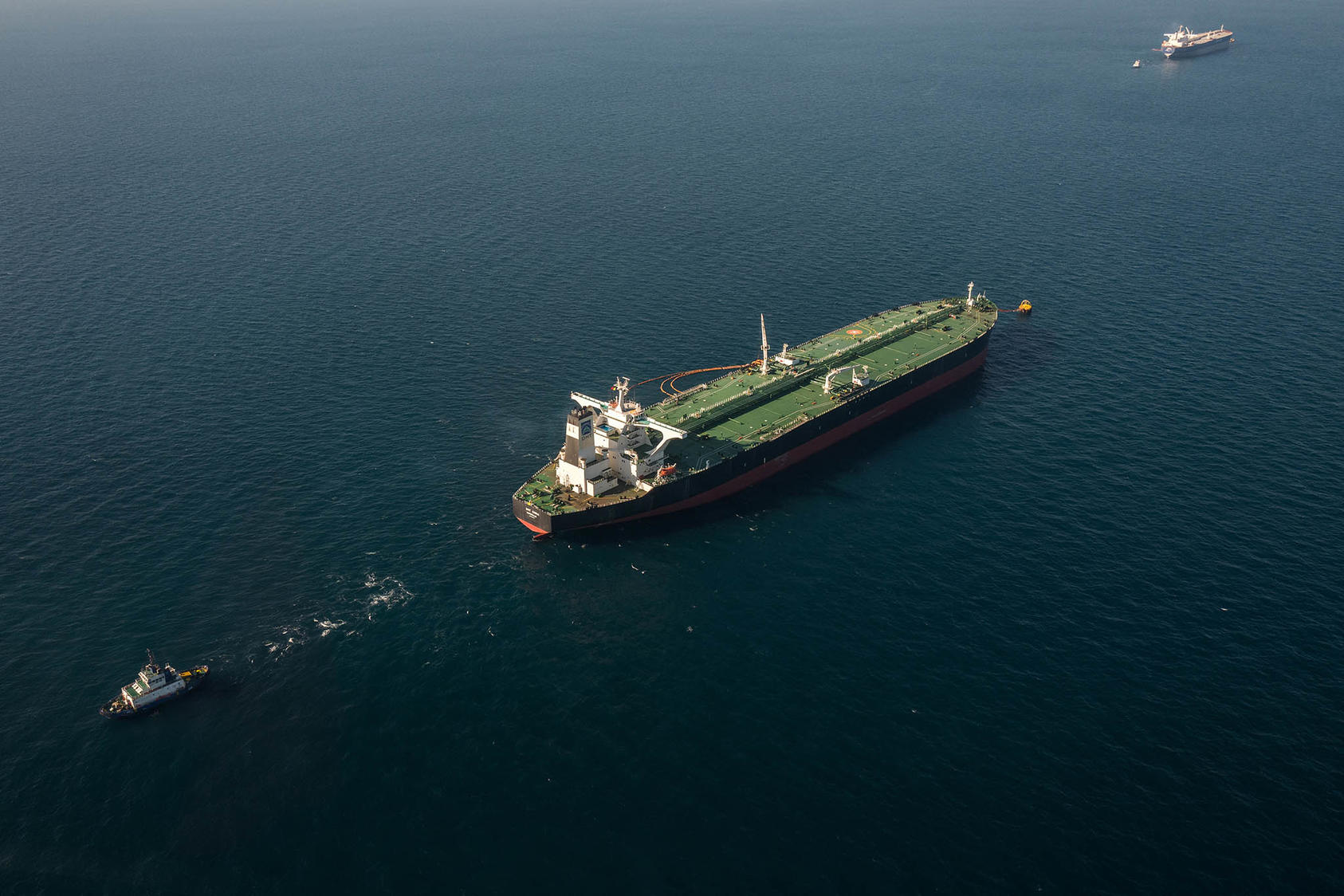China’s Overreliance on Gulf Oil Is a Vulnerability for Everyone
Xi Jinping’s recent visit to Saudi Arabia highlights just how important the Persian Gulf is to China — and why that’s a risk to global stability.
Gulf states have proven to be a dependable port in a storm for China’s oil producers and traders. For the past two decades, the region has consistently supplied China — the world’s largest single crude oil importer — with roughly half of its crude oil imports from overseas. By contrast, it seems China’s oil interests in every other region of the world have been battered by gale force winds.

In Africa, China’s investments in Libya, Sudan, South Sudan and Angola have all faced significant setbacks. In no small part, this has led to a decline in China’s overall crude oil imports from the African continent. As a proportion of China’s global oil imports, African supplies have gone from a high of 31% in 2010 to roughly 15% in 2020 (based on the author’s calculation of data available here).
Similarly, in Venezuela, Iran and Russia, Chinese oil companies have had to navigate international sanctions after expending considerable time and resources in building up collaborations. Western countries are no safer, as China National Offshore Oil Corporation is now said to be reviewing its investments in Canada, the United States and the United Kingdom for fear that its assets could be threatened if relationships with the West deteriorate further.
To complicate matters, China is no fan of the Organization of the Petroleum Exporting Countries’ (OPEC) production caps. It is an oil importer with an export economy reliant on manufacturing and has a transport sector that is ravenous for petrol. Although China would not say so publicly, Beijing’s interests are actually aligned with Washington, London and Brussels in having Saudi Arabia’s leadership relax OPEC’s production policy. However, Chinese Communist Party General Secretary Xi Jinping is unlikely to have any more success convincing Saudi Crown Prince Mohammed Bin Salman than Western leaders. Ultimately, there is enormous pressure on Xi to make this relationship work.
Success for Xi?
In light of all this, Xi’s recent visit to the Kingdom appears to have been a success from China’s perspective. Furthermore, China’s leader vowed to buy more Gulf oil and, given China’s oil woes in other regions, there is good reason to believe Gulf oil will only increase in significance in China’s basket of imports.
However, the Gulf states are no panacea for Chinese policymakers. First, the region has its own instabilities. But more importantly, Beijing still needs to safely transport Gulf oil back to China’s eastern seaboard. In recent years China has tried to construct more pipelines to Russia and Central Asia and, in the medium to long run, these pipelines may help address Beijing’s reliance on vulnerable oil tankers traversing sea lanes. But for now, China still has a much bigger headache than other countries who rely on the Middle East for their oil.
As China-bound oil tankers inch across the Indian Ocean, through the Straits of Malacca, and up the South China Sea, flare ups with India, Southeast Asian states, the United States and Australia become a real concern for a country that imports roughly 72% of its crude oil needs from overseas.
Fears of Vulnerability Can Fuel Overreaction
Indeed, if Xi and his Politburo colleagues do have near-term designs on Taiwan, then Beijing may be very concerned about the types of sanctions or blockades that could be placed on China-bound oil tankers.
Seemingly aware of its vulnerabilities, China has taken the opportunity of low Russian prices to increase its commercial and strategic stockpiles of crude oil in recent months. We should also anticipate China’s understandable desire to protect its energy security interests in the longer term.
The calculation from Beijing may be that it has no choice but to increase its security presence in the Indian Ocean and South China Sea. Its challenge will be to do so without inflaming pre-existing tensions or elevating pre-existing fears over China’s putative designs for a network of overseas military bases.
And contrary to the conventional view that China’s security actors are adamant on building new bases imminently, there are still some in Beijing who question the viability of such projects. Not to mention the more important consideration of the agency of the potential host countries, who may be reluctant to host a Chinese base or drive a hard bargain in return for accepting a Chinese naval facility or logistics hub.
There are no easy solutions for Chinese policymakers, but nor are there easy answers for regional powers who are watching China’s energy security requirements producing a Beijing that is overly reliant on Gulf state oil. A jittery Beijing may respond to any perceived threat to China-bound oil tankers with hostile escalation.
In short, a vulnerability for China can become a vulnerability for everyone.



